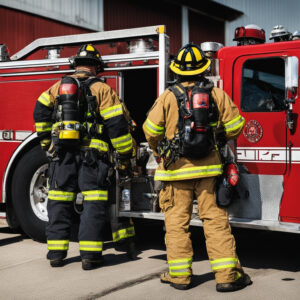What Type of Fire Can Be Extinguished by a Water Spray?
When it comes to fire safety, one size doesn’t fit all. Understanding what type of fire can be extinguished by a water spray? can be a lifesaver in an emergency. While water is an incredibly effective and accessible tool for many fire scenarios, it must be used with caution and under the right circumstances.
Types of fires are necessarily extinguished in different ways. This guide goes deep along the paths of using water as an extinguishing method, safety measures to be followed, and methods for fire-damaged homes.
Class A Fires
Solid material fires form Class A fires and usually involve burning wood, paper, or cloth. They burn by generating heat and require oxygen, making water an excellent medium to quench the flames. Water reduces the temperature of the fire, thus removing the element of heat from the fire triangle comprising heat, oxygen, and fuel.
For instance, a small tabletop fire caused by the knocking over of a candle can often be doused with water from a garden hose or a simple kitchen bucket. However, it is imperative to identify the fire as Class A before acting, as misjudgment could lead to great destruction or injury.
Fires Where Water Fails
While water works wonders for Class A fires, it’s not always suitable. Here are some scenarios where water falls short:
- Grease and Oil Fires: It is well known that burning cooking oils produce flames of an extremely high temperature and an explosive response to water. Water serves as an active agent in grease splattering and spreading flames even further. Instead, priority should be given to suffocating the fire using a metal lid, baking soda for extinguishing, or use of a Class K fire extinguisher.
- Electrical Fires: Class C fires result when faulty appliances, wiring, or power surges are involved. Water, being an electric conductor, in such situations would elevate the risk of electrocution. In such cases, the power supply must first be shut down, and extinguishing agents rated for Class C fires should be used.
- Flammable Liquids: Fires caused by gasoline, paint, or alcohol (Class B fires) can turn terribly dangerous if water is used for extinguishing. Water can spread these liquids and, meanwhile, spread the fire more vigorously. The use of foam extinguishers or dry chemical agents would be a better option.
Fire Safety Goes Beyond Extinguishment
Emergency Preparedness
While it’s important to know what type of fire can be extinguished by a water spray, it’s equally critical to prepare ahead of potential emergencies. Consider these steps to enhance fire safety at home:
- Install Fire Alarms: It is necessary to install alarms in strategic places like the bedroom, kitchen, and hallway. Test them every month and change if necessary.
- Keep Multiple Fire Extinguishers: A combination of A, B, C, and K extinguishers ensures you’re prepared for different fire types.
- Fireproof Important Documents: Use a fireproof safe for critical documents like house deeds or insurance papers.
- Plan and Practice Fire Escapes: It is important that you arrange escape routes and meeting places and also that you conduct household fire drills regularly.
Safety Tools and Practices
Investing in the infrastructure of your home can actually reduce the chances of fire to a great extent. Sprinkler systems, fireproof doors, and proper ventilation will hold back even small accidents from becoming dangerous fires. Never leave stoves, candles, or space heaters unattended, and keep all combustibles stored safely.
Building Resilient Habits for the Future
After dealing with a fire, it’s essential to focus on long-term prevention to protect your new home and loved ones. Understanding what type of fire can be extinguished by a water spray? is a great starting point, but ongoing education and upgrades are key to better protection.
- Buy Fire-Resistant Materials: Update fire-resistance levels of doors, use insulation materials, and buy treated wood for renovation or building.
- Educate Your Family: Teach kids and adults alike about fire hazards, evacuation plans, and extinguisher usage.
- Partner with Local Fire Departments: Many departments offer free workshops, inspections, or resources for improving home fire safety.

The image shows firefighters in full gear beside a fire truck, ready for emergency response.
Emergencies almost never announce themselves, but being prepared may be of great consequence. Whether you rebuild or sell your property after a fire, this is a chance to learn, make thoughtful decisions, and adopt lifelong safety practices. Fire safety is more than extinguishing fire; it is about protecting your family from the future.
Previous